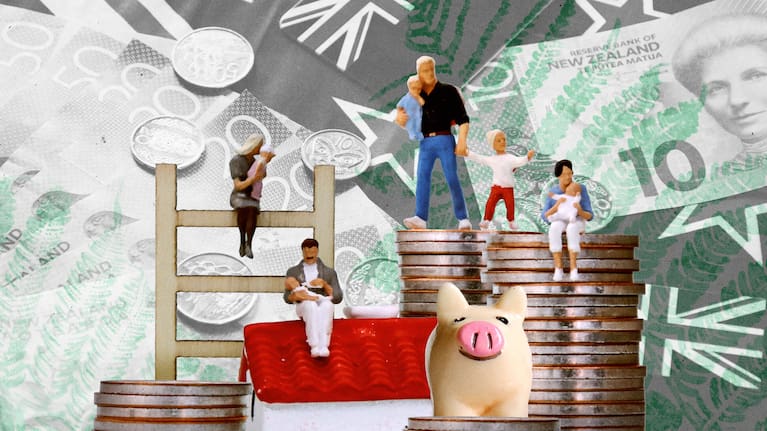Fewer than half of the 100,000 families promised a childcare subsidy boost by the Government have claimed and received payments, figures show.
During May’s Budget, the Finance Minister said the FamilyBoost payments would “make a difference to more than 100,000 Kiwi families – that’s 140,000 Kiwi kids”. The policy offered families, earning up to $180,000, a maximum of $75 a week for childcare fees.
While 58,770 have registered for the payments, only 41,550 claims have been approved, with 1495 households receiving the full $75 rebate.
About $15.7 million had been paid out — while a total of $174 million was budgeted for the scheme.
Finance Minister Nicola Willis told 1News the 100,000 family target had been a full-year estimate. She added it was early days for the programme and that children came and went from early childhood education (ECE) over the year.
Prime Minister Christopher Luxon also defended the uptake, saying families had plenty of time to claim what they were entitled to.
“They have up to four years to actually get their claims in and processed. I’m pretty proud we’ve had 60,000 register and 42,000 get the cash in their bank accounts.
“I’d just encourage more people to do exactly that,” he said.
Labour Party finance spokesperson Barbara Edmond said the programme was too complicated for parents to access.
To apply for FamilyBoost families had to submit invoices for childcare through IRD.

“The Government has not made it easy for Kiwi families to be able to access FamilyBoost. That is the key difference between ECE 20 hours free — which we were looking to extend to two-year-olds,” Edmonds said.
“IRD and government officials were meant to report it back to the Government in December with an easier way to administer this.
“We haven’t seen anything that’s made it easier.”
Some parents 1News spoke to earlier today were unsure whether they could be eligible for FamilyBoost, while others said they found the programme simple to apply for.
The Child Poverty Action Group’s ECE spokesperson, Professor Jenny Ritchie, criticised the reimbursement model.
The Government’s FamilyBoost scheme could see some families up to $75 better off per week. (Source: 1News)
“When we’re looking at people who are financially tight, to make people pay first and then be reimbursed is just very inconsiderate — if not a deliberate attempt to prevent people from accessing what they’re entitled to,” she said.
“I think that the Government, really, has a responsibility to ensure that there is free, accessible, high-quality early childhood provision in all communities.”
Of the 57,227 claims submitted to IRD, 10,583 were declined, with about two-thirds rejected due to income exceeding the quarterly threshold.












